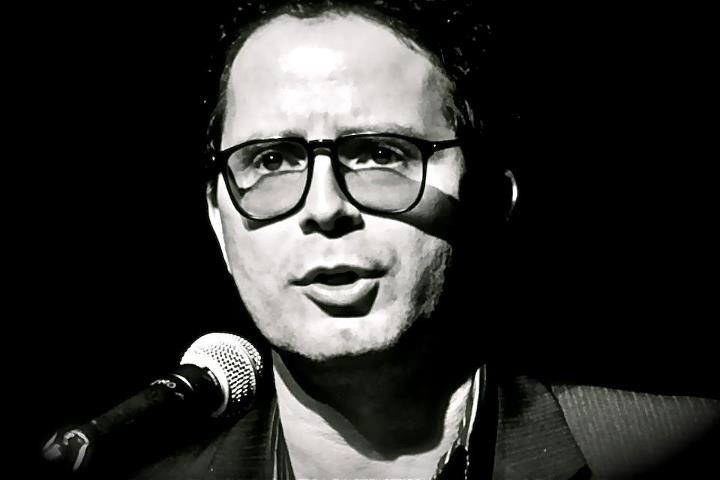Molano writes about the Montes de María region, along Colombia’s Caribbean coast southwest of Cartagena. He describes a war-scarred region where “strange personalities” in armored Hummers are buying up small farmers’ land, and where the government is carrying out “consolidation” programs that give the Colombian military a significant role in development projects. If you're wondering why we should be concerned about the latest phase of Plan Colombia, take a look at this piece. While there is now talk about shrinking the military component of Plan Colombia aid in exchange for more social-oriented projects, why are those projects being directed by...the military? It's a return to the Reagan-inspired projects in Central America in the 1980s, and the Strong Roads Program that totally militarized Panama. Here is the Spanish version of the column, posted in ACIN's website.
 Consolidation, Inc.
Consolidation, Inc.
By Alfredo Molano Bravo
El Espectador (Bogotá), December 7, 2008
The four dead in El Pozón, a neighborhood of displaced people in Cartagena, didn’t merit anything more than small-type headlines in the newspapers and a brief reference on the radio.
In El Carmen de Bolívar, where the dead originally came from, the news spread quickly and opened up a debate. First in moderate tones and then little by little, as the weather grew hotter, an open discussion full of wounded cries about the post-conflict reality in the Montes de María. This is a mountain range that has been beaten down by violence since the 1950s, suffering the massacres of El Salado, Chengue and Macayepo, carried out by the paramilitaries under the command of alias Cadena and alias El Tigre, protected by politicians in the region and with the participation of some loose ends among the Marines.
After the death of [Caribbean Bloc commander] Martín Caballero [in October 2007], the FARC have continued to suffer blows and the security forces continue to advance. The result has inspired the government to proclaim victory, and to launch a military consolidation plan called the “Integrated Action Fusion Center,” which is nothing more than an updated way of carrying out military civic-action projects. The Marines are in charge of all government institutions, from [the presidency’s office of] Social Action to the ICBF [child and family welfare institute], a coordination that ends up being authoritarian. The military has begun to contract all infrastructure projects with the civilian sector, such as roads, bridges, schools, or medical centers; to carry out health-care brigades; to organize campesino associations; to entertain the campesinos with a traveling circus; and, though it may surprise the country, to give human rights workshops.
The program is nothing more than the militarization of the state’s social programs. After the blood and pain of the massacres, after the military’s securing of the zone, now the way is open for a civilian operation in the hands of those in uniform. The people look on with skepticism. They have memories. The European Union, which financed much of the existing public works, is uncomfortable with its new partner, since its aid programs prohibit participation in military plans; and as if that weren’t enough, it is hard enough to get most public functionaries to do their own jobs.
The surprising “post-conflict” thesis has another dissonant note: for the past several months, strange personalities have come to the towns of the Montes de María in bulletproof Hummers to negotiate land purchases. (Hummers are combat vehicles from the Gulf War, today sold commercially and hated by environmentalists for the very high levels of pollution that they produce.) That is, they come to buy, at a low cost, small properties that have been foreclosed upon by the banks or by businesses. Or because they like to have their pistols seen and they don’t hide their bodyguards. Campesinos who have managed to come out of the war alive, or who have returned after being displaced to other cities, are the first ones obligated to sell.
There are chains of intermediaries who offer confidential commercial information and who pass through the small farms issuing “Águilas Negras” threats. It doesn’t stop there: large and recognized dairy, timber, and - of course! - oil-palm companies are those who end up buying these lands and making them into very respectable agro-industrial enterprises. It would all seem to be a perfect plan, were it not for the campesinos who have noticed “how the stream’s water arrives at the mill,” and who also know how to tell of the terrible roads they had to take to get to the notaries [to close the sales of their land]. The issue is so serious that the Bolívar departmental government has frozen land sales in the region.
Europe, which finances the social programs that the government is carrying out in the Montes de María and in the Macizo Colombiano (the mountains of southwestern Colombia), among other regions, cannot be indifferent to this huge institutional change. Nor can the incoming U.S. government: what Uribe is doing is getting out ahead of the likely reduction in Plan Colombia’s military aid and giving the military control over money spent for exclusively social purposes. This will allow [Defense] Minister [Juan Manuel] Santos to begin his election campaign and the military to continue enjoying preferential treatment in the budget.

No comments:
Post a Comment